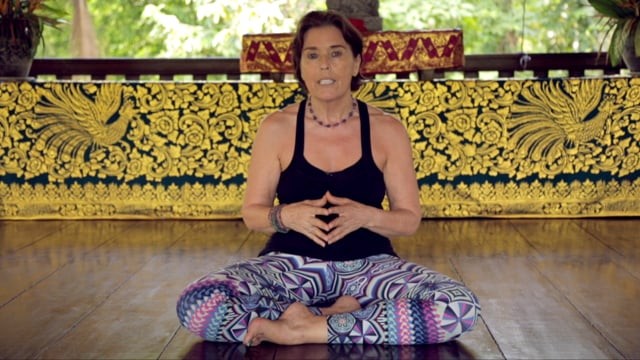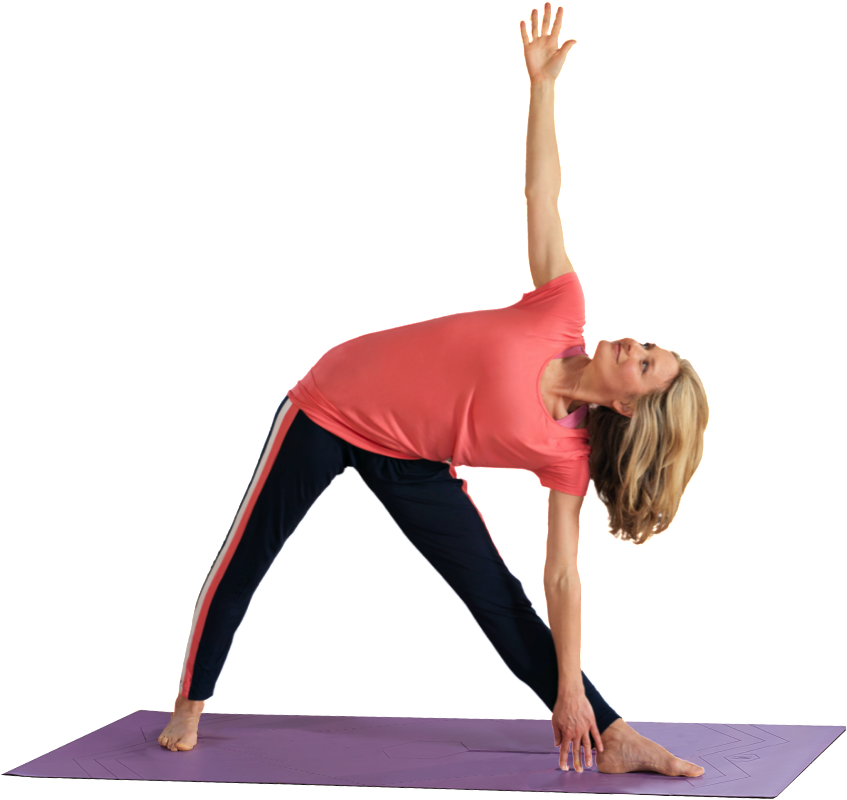Yoga Philosophy › Vidya Heisel
Courses
-

Transformation Course
30 Steps
Join Zephyr Wildman to progress and extend your yoga practice with dynamic flows and deep meditations.

Ancient Wisdom for Modern Life 2
10 Steps
A 10-class course led by Adam Hocke and Mimi Kuo-Deemer inspired by Buddhism.

Ancient Wisdom for Modern Life 1
Classes
-
 14:48
14:48The Eighth Limb: Samadhi
In this yoga philosophy class, we explore the concept of Samadhi. Samadhi is the eighth and final limb of Patanjali's eight limbs of yoga, and it means enlightenment. This can be quite a challenging concept for us to grasp, but it is often thought of as freedom from the limited sense of self.
-
 16:17
16:17The Seventh Limb: Dhyana
The seventh limb of yoga is Dhyana, or meditation. The eight limbs of yoga represent the path of meditation, which is considered to be the greatest tool in our yoga practice to help us experience Samadhi by understanding and mastering the mind to experience equanimity and balance.
-
 08:50
08:50The Sixth Limb: Dharana
Patanjali's sixth limb of yoga is Dharana, which means concentration. This limb is all about refining your ability to focus and concentrate, so your mind doesn't wander and resist the practice.
-
 10:33
10:33The Fifth Limb: Pratyahara
The fifth limb of yoga is Pratyahara which means withdrawal of the senses or turning inwards. This refers to the first step of meditation after laying the groundwork with the practices in the previous limbs. Withdraw from external stimulus by turning off your phone or retreating to a quiet room for a time and take your attention inwards.
-
 14:48
14:48The Fourth Limb: Pranayama
The fourth limb of Patanjali's path is Pranayama which means life force energy. It is thought that the more of this life force energy we can cultivate, the more healthy, awake, alive and aware we will be, and the greater our longevity. Learn about some of the different types of breath work used to practice pranayama.
-
 17:53
17:53The Third Limb: Asana
Patanjali's third limb of yoga is Asana, or the physical practice of yoga. Despite there being very little mention of yoga postures in the Sutras, asana traditional refers to the practicing of sitting for meditation, which then evolved to encompass the yoga poses we know today.
-
 14:16
14:16The Fifth Niyama: Isvara Pranidhana
The fifth and final Niyama is Isvara Pranidhana, or surrender to the absolute. This Niyama is all about how we respond to occurances beyond our control; are we a victim living in fear or can we see and embrace the beauty in the unknown?
-
 15:42
15:42The Third Niyama: Tapas
The third Niyama is Tapas, which means self-discipline. It also translates as 'burning' which can be looked at in a few different ways, including a burning passion for leading a spiritual yogic life.
-
 07:02
07:02The Second Niyama: Santosha
The second Niyama is Santosha, which means contentment. We can look at this Niyama in a couple of ways; to practice contentment with who we are and what we have, and to practice the Yama of Aparigraha, or freedom from greed.
-
 17:30
17:30The First Niyama: Saucha
The Niyamas are observances, the first of which is Saucha, which means purity. Both of cleanliness of the body and the space of around us, and purity of thoughts, intentions and behaviour.
-
 09:43
09:43The Fifth Yama: Aparigraha
The fifth and final Yama is Aparigraha, which means 'freedom from greed'. This is one of the key tenants of Buddhism; that we are suffering because we are full of desire. Our ego is always needing or craving something, but our true self is already whole. More things does not necessarily fulfil that hole inside of us!
-
 20:24
20:24The Fourth Yama: Brahmacharya
The fourth Yama is Brahmacharya, which means celebacy. Traditionally in India, young men would choose between being a wandering yogi or a householder, but today it is acceptable to practice a spiritual life and yoga, and be a householder. But how is this Yama relevent to our lives today in the West when celebacy is not a common way to live?
Join the Wellbeing Revolution
This is your yoga, your way.
Build a happier, healthier, more sustainable life.
Then subscribe for £17 per month. Cancel anytime.